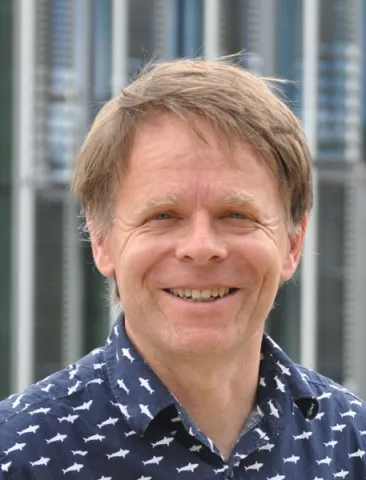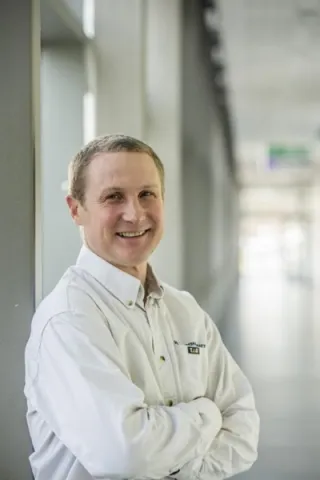Project overview
The main motivator for the proposed research is performance improvement of energy capture or hydrodynamic efficiency of propulsion systems. In particular, the application requirements of passively adaptive underwater tidal turbine blades and marine propellers. However, the investigators believe that application of passively adaptive composites structures could extend to include passively adaptive race car aerodynamics, aircraft control surfaces, surface ship and underwater vehicle control surfaces, and wind turbines. In order to achieve this goal it is proposed to employ composite materials with their inherent ability to create a coupled response to in-service loads. Design of such a structure which is tuned to a dynamic load environment will result in improved efficiency of the two main applications of this research, energy capture devices and marine propulsors.The aim of the proposed research is to challenge the existing design philosophy from one whereby a tailored passively adaptive composites is designed to mimic a conventional isotropic structure into a paradigm that allows the ability to tune a geometry and it's internal architecture to deform in a known and controlled manner as the load regime changes. Such an approach requires fundamental research into the modelling of interwoven, 3D fibre structures and novel approaches to design of the internal architecture that can identify fibre stacking/weaving strategies that give tuned deformations across multiple loading/operational conditions. To develop this paradigm shift in structural performance we will explore how lifting surfaces, be they control surfaces, propulsors or turbines are designed using such smart materials. The main focus will be the maritime sector where there has been a much slower take-up in such technology but where the potential benefits are large (see impact plan). To the authors knowledge this has not been conducted anywhere before and is therefore a challenging and exciting programme.
Staff
Lead researchers
Other researchers
Research outputs
L. Marimon Giovannetti, J. Banks, M. Ledri, S.R. Turnock & S.W. Boyd,
2018, Ocean Engineering, 167, 1-10
Type: article
Laura Marimon Giovannetti, Joseph Banks, Stephen Turnock & Stephen Boyd,
2017, Journal of Fluids and Structures, 68, 125-140
Type: article
Laura Marimon Giovannetti, Joseph Banks, Steve Boyd & Stephen Turnock,
2016
Type: conference
Joseph Banks, Laura Marimon Giovannetti, Joshua Taylor & Stephen Turnock,
2016, Procedia Engineering, 147, 311-316
Type: article
Joseph Banks, Laura Marimon Giovannetti, Xavier Soubeyran, Alexander Wright, Stephen Turnock & Stephen Boyd,
2015, Journal of Fluids and Structures, 58, 173-187
Type: article
J. Banks, Laura Marimon Giovannetti, S.R. Turnock & S.W. Boyd,
2014
Type: conference
R.F. Nicholls-Lee, S.W. Boyd & S.R. Turnock,
2013, Renewable Energy, 50, 541-550
Type: article


